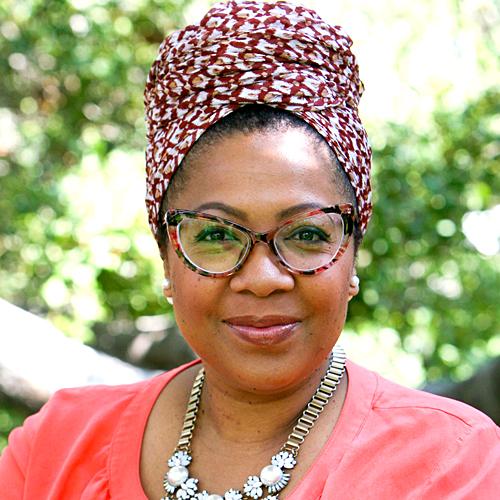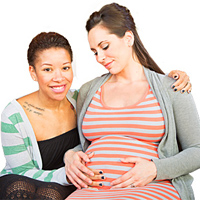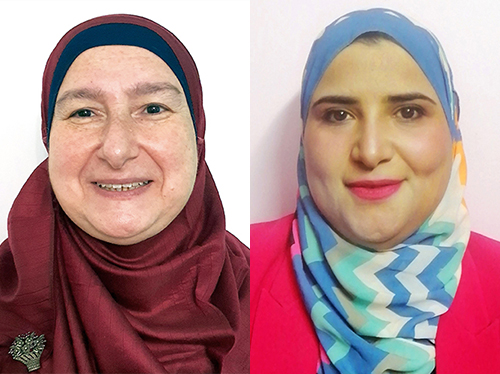 IBCLC Detailed Content Outline: Clinical Skills / Education and Communication Focused CERPs - Section VII B
IBCLC Detailed Content Outline: Clinical Skills / Education and Communication Focused CERPs - Section VII B
Access CERPs on Clinical Skills / Education and Communication for the IBCLC Detailed Content Outline recertification requirements. On-demand viewing of the latest Clinical Skills / Education and Communication focused IBCLC CERPs at your own pace.
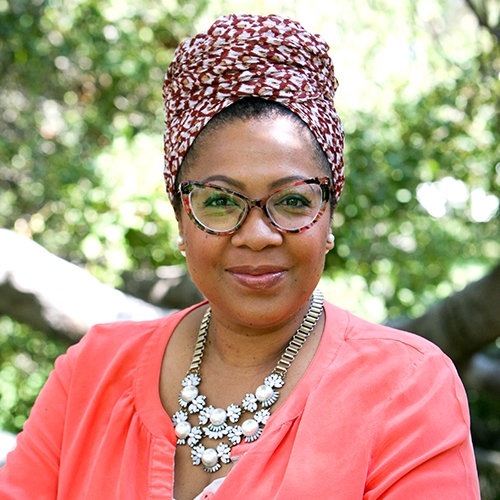

Nekisha Killings is an equity strategist, internationally board-certified lactation consultant, and maternal and child health advocate who speaks, teaches, and facilitates on topics related to equity and dismantling bias across various sectors.
When she is not home educating 4 future world changers, she acts as a Director of Equity, Inclusion and Belonging at Lactation Education Resources and consults organizations on creating and implementing strategies to better support marginalized communities.
Nekisha holds a Masters in Public Health and penned the chapter titled Cultural Humility in the latest Core Curriculum for Interdisciplinary Lactation Support text. Nekisha is on a mission to normalize brown breasts and nipples in health education, thereby better equipping healthcare providers to accurately assess and treat people of color.
Nekisha's work is rooted in a compassion and candor that could only have been cultivated in years of supporting new parents during their first days of parenthood. Nekisha is an active duty military spouse who has been awarded the Spouse of the Year designation for her volunteer efforts supporting families.
Topic: Breast Assessment and Non-White Skin Tones - [View Abstract]
Topic: BreastSide Manner: A Patient-Centered Approach to Lactation Support - [View Abstract]
Topic: Marching Orders: Developing Practical and Impactful Care Plans - [View Abstract]
Is a red spot always a key indicator of mastitis? What about the deep purple trademark of vasospasm? How does eczema present on non-white skin? Performing a standard breast assessment may cause clinicians to overlook or misidentify key indicators of maladies in patients that are not fair skinned. Learn how you can improve your assessments and familiarize yourself with other ways to identify common conditions in patients populations that may not have been featured in your textbooks.
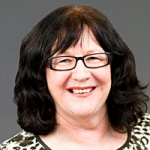
Breastfeeding - what we need to know as Birth Workers

Geraldine has been involved in breastfeeding support and education for 30 years in Ireland. She works in private practice as a Lactation Consultant doing home visits. She has a major interest in Adult Education and she runs Training of Trainer (Lactation) courses for healthcare professionals in Ireland. She tutors for a group called Cuidiú, training both breastfeeding counselors and childbirth educators.She has organized Peer to peer education for other groups in Ireland and abroad. Geraldine has spoken at many conferences both in Ireland and abroad or a range of topics but her choice usually comes back to her interest in Adult education and the theories around learning styles, groupwork, experiential learning and programme development.
Topic: Learning styles – Certainly Not a One Size Fits All - [View Abstract]
Birth workers are usually the first contact with parents and are therefore the people who are best placed to influence them in their choice of infant feeding method. Adults only retain information on a ‘need to know’ basis, so meeting the needs of individuals in your interactions is important. Whether you provide a formal breastfeeding class or just have 5 mins to chat during a prenatal visit, what is the best way for you to provide evidence, which information is important. How can you help parents to make an informed decision about feeding. Adult education theory, learning styles, aims and learning outcomes for your interactions, as well as breastfeeding information will be presented and ideas for how you can make your clients learning fun and interactive.
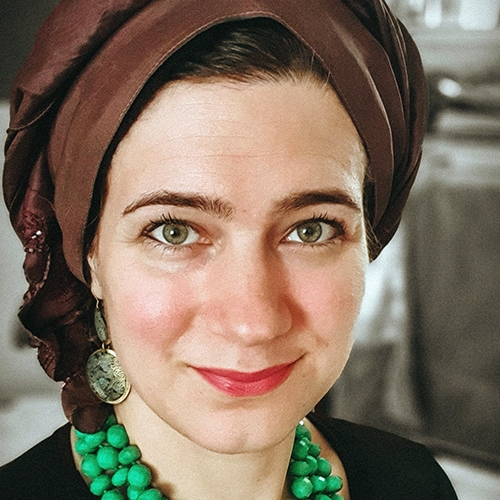
Breastfeeding / Nursing Aversion and Agitation (BAA) in breastfeeding mothers

Zainab Yate is a Biomedical Ethicist, with a specialist interest in infant feeding. Zainab is Vice Chair and named qualitative lead on a paediatric flagged Research Ethics Committee Panel for the Health Research Authority (HRA) in the UK, reviewing research protocols for over a decade. Zainab's previous working background is in Public Health and Commissioning the National Health Service (NHS) in the UK. She had also been a volunteer breastfeeding peer supporter with the NHS for a number of years, is the owner-author of the resource site for mothers and healthcare practitioners on Breastfeeding / Nursing Aversion and Agitation and author of "When Breastfeeding Sucks".
Topic: Breastfeeding / Nursing Aversion and Agitation (BAA) in breastfeeding mothers - [View Abstract]
Topic: Navigating the Future: Bioethical Challenges in Anticipated Integration of AI in Lactation and Breastfeeding Services - [View Abstract]
Topic: Research Ethics & Infant Feeding: How to Utilise the Four 'D's of a Brief Assessment - [View Abstract]
Aversion to breastfeeding or agitation while breastfeeding is known to occur in some women who breastfeed while pregnant, or who tandem feed a newborn and a toddler. However, it is a little researched area, and the paucity of published literature around breastfeeding aversion and agitation reveals a significant gap in the literature. My presentation presents the findings of an exploratory online survey that sheds light on what appears to be a commonly experienced phenomenon of aversion and agitation whilst breastfeeding, which varies in form, severity and duration. BAA is characterised by feelings of anger or rage, a skin crawling sensation and an urge to remove the suckling infant, but can also be feelings of agitation and irritability whilst the infant is latched. Mothers who experience BAA still continue to breastfeed, but have feelings of guilt and shame about BAA and are often confused about having feelings of BAA. Research is needed to understand the reasons for BAA, its causes, triggers and strategies to minimize the experience in breastfeeding mothers.

View Details / Enroll
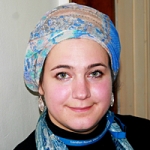
View Details / Enroll
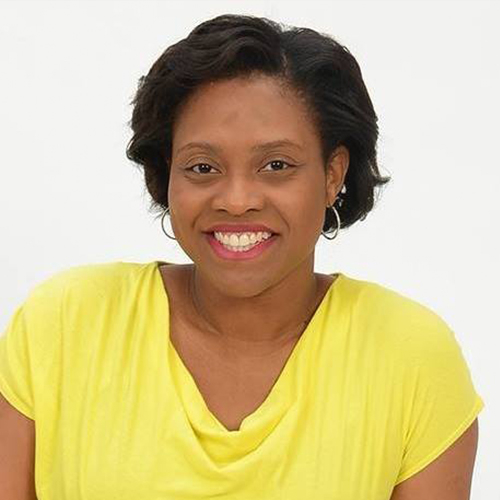
Breastfeeding After Release: The Importance of Anticipatory Care

Karese, like many parents, suffered in silence while her children struggled with the symptoms of undiagnosed sleep and breathing issues. One visit to a pediatric dentist changed the trajectory of their lives. Already a Registered Dental Hygienist (RDH), Karese, trained with Sandra Holtzman, Lois Laynee and Sarah Hornsby to establish her orofacial myology knowledge. With this initial training and numerous others, in a few short years she has not only resolved all her children's issues, but helped hundreds of patients, children and adults alike, discover how great life can be functioning on full. Her private practice, The Myo Spot is now a leader in the quest for myofunctional therapy awareness and public education. Her latest published book, Accomplished, delves into how to sleep better, eliminate burnout, and execute goals. Karese's mission is to transform and positively impact as many households as possible through dynamic breath, brain and body work.
Anticipatory care plays an essential role in achieving desirable outcomes after the revision of tethered oral tissues. Tethered oral tissues are a common and underdiagnosed problem that impacts potentially 10% of the United States population. Lack of a universally accepted approach to diagnosis, treatment, and management creates confusion for the public and prohibits optimal care. This lecture dissects current research, trends, and information to present a deeper connection between oral function and anatomy during breastfeeding and tethered oral tissue revision management. Discover the interdisciplinary approach to restoring a functional and healthy breastfeeding relationship to the dyad and the critical importance of setting families up for success by providing adequate anticipatory care and guidance prior to revision.
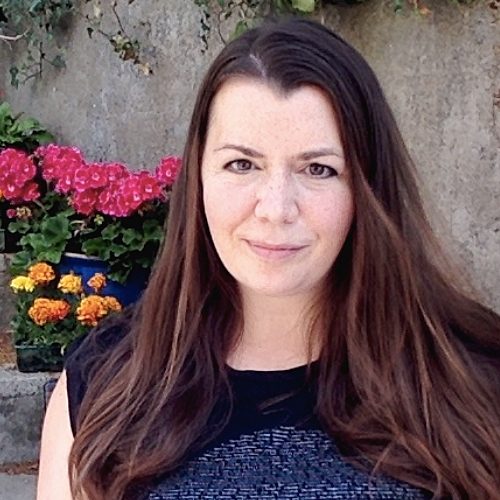
Breastfeeding as a Public Health Issue: Do we Have the Right Approach?

Professor Amy Brown is based in the Department of Public Health, Policy and Social Sciences at Swansea University in the UK. With a background in psychology, she has spent the last thirteen years exploring psychological, cultural and societal influences upon infant feeding decisions in the first year. Her research seeks to understand how we can shift our perception of how babies are fed away from an individual mothering issue to a wider public health problem – with societal level solutions. Dr Brown has published over 60 papers exploring the barriers women face in feeding their baby during the first year. She is a mother to three human children and three book babies: Breastfeeding Uncovered: Who really decides how we feed our babies, Why starting solids matters, and The Positive Breastfeeding Book: Everything you need to feed your baby with confidence. She is a regular blogger, aiming to change the way we think about breastfeeding, mothering and caring for our babies.
Topic: Breastfeeding Trauma: How Can We Recognise and Support Mothers Who Wanted to Breastfeed but Were Unable to Meet Their Goals? - [View Abstract]
Topic: How Can We Better Support Mothers Don’t Meet Their Breastfeeding Goals? - [View Abstract]
Topic: What Do Normal Infant Feeding Patterns Really Look Like? - [View Abstract]
The majority of women should be able to breastfeed, but elements of their experience are ultimately stopping them from doing so. Breastfeeding works best when done responsively but many psychological, social and cultural factors work directly or more subtly against responsive feeding, meaning that many mothers experience difficulties with breastfeeding which can lead to premature weaning. These factors can include separation of mother and baby, a lack of understanding of breast milk production, public attitudes and wider pressures of motherhood to name a few. If we want to support mothers to breastfeed we must understand and target these wider factors to create a supportive breastfeeding environment. It is important however that our approaches to breastfeeding promotion and education are perceived positively by mothers in order for them to be effective. In this presentation I’ll be addressing the common barriers to breastfeeding and their impact, along with new research that looks at how mothers perceive common breastfeeding education messaging and what this research tells us about how we can change our approach to ensure our messages have the intended impact.

View Details / Enroll
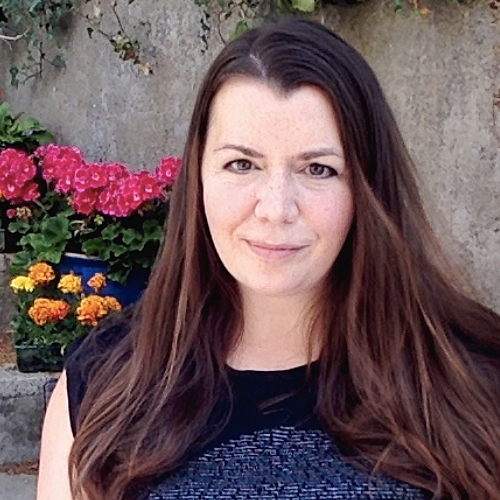
View Details / Enroll
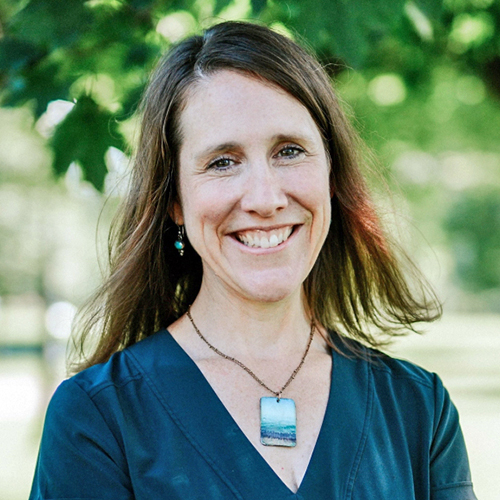
Breastfeeding as Movement: Case Studies on Posture, Movement and Reflexive Function in Complex Feeding Challenges

Allyson is a physical therapist, International Board Certified Lactation Consultant and co-owner of Nurture Columbus, in Columbus, Ohio. She completed a Bachelor’s degree in Biology from Ohio University in 1997, and Master of Physical Therapy degree from Northwestern University in 1999. After having a child in 2007, she volunteered as a La Leche League leader. She discovered a love for supporting new parents but a gap in lactation care, which led her to become an IBCLC in 2014. Her clinical approach to identifying and overcoming feeding challenges is unique with physical therapy foundations in posture, movement and reflexive function. Through presentations she endeavors to engage IBCLCs to know more about movement as related to human lactation, and PTs to learn about breastfeeding/chestfeeding as related to human development. As past-president (2019-2021) of the Ohio Lactation Consultant Association, she also advocates for equitable access to and health plan coverage for lactation care.
Topic: Neuroanatomy and Biomechanics: Breastfeeding as a First Movement Milestone - [View Abstract]
Knowledge of neuroanatomy, reflexes, and biomechanics as related to breastfeeding is essential to IBCLC competency. This presentation will define breastfeeding in terms of posture, movement, and reflexive function. Examples of neuromuscular dysfunction that impair breastfeeding will be provided through a series of case studies with emphasis on dissipating stress while empowering families with strategies to optimize movement essential to breastfeeding success. The presentation will build on the definition of breastfeeding as a first movement milestone strengthened through interactive tummy time at a most basic level, and through ongoing movement related assessment and treatment as necessary for complex feeding challenges. Also addressed will be some new research on pressure to breastfeed. Awareness of how IBCLC care might be perceived is important for establishing trust among families seeking it and the healthcare community referring to it.
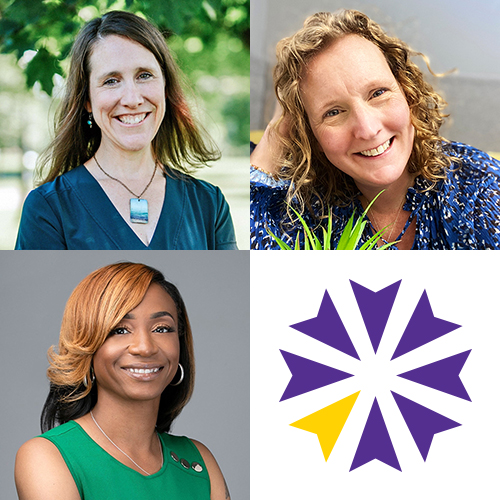
View Details / Enroll
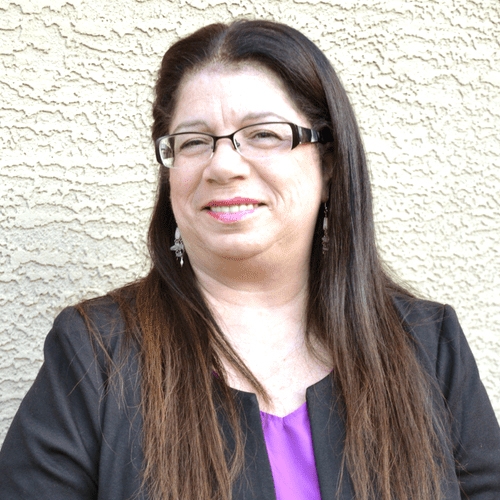

Lori J. Isenstadt, IBCLC, CCE, CBD, began her IBCLC career in 2 large hospitals and a local breastfeeding clinic. In 2007, she opened her practice, All About Breastfeeding, offering private consultations, and breastfeeding classes. Her expertise ranges from basic breastfeeding through the most complicated of breastfeeding challenges. In the last 30 years, Lori has taught breastfeeding classes to over 8000 parents where she focuses on what they should expect in the early days of breastfeeding. Lori is a member of Toastmasters International and enjoys speaking about mothering and breastfeeding. Lori is the host of All About Breastfeeding, a podcast where she interviews mothers, authors, researchers and physicians about topics related to breastfeeding. Lori believes that breastfeeding is a family affair. To help support her mission to educate families as well as corporations and business owners about breastfeeding, she has recently released the most comprehensive audio breastfeeding masterclass. She has produced over 300 shows many of which focus on breastfeeding educational topics. On a personal note, Lori resides in Phoenix, AZ is married to Alan for 38 years and is the mother of three adult children. Lori can be reached by email: [email protected] and website: www.aabreastfeeding.com
Topic: The Good news about delivering bad news: how to present difficult information to parents - [View Abstract]
Topic: The Original Foster-Mother Were Wet Nurses - [View Abstract]
Global breastfeeding initiation rates are about 80-85%. Unfortunately, there is a significant drop off rate of exclusive breastfeeding in the early weeks, well before parents return to work. The latest statistics of 45% exclusive breastfeeding at 3 months and 28% exclusive breastfeeding rates at 6 months clearly demonstrate that duration not initiation is the real struggle. This presentation will begin by reviewing global breastfeeding rates. We will than gain some real insight from parental feedback which helps us to understand what changes we need to make in breastfeeding education. You may be surprised to find out exactly what the point of breastfeeding classes are and who we should be targeting to help support parents in the early months of breastfeeding.

View Details / Enroll
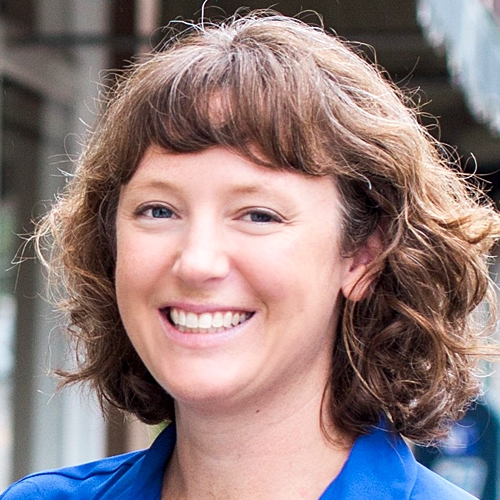
Breastfeeding Education in Secondary Schools—Research and Application for Lactation Professionals

After studying biology at Meredith College in North Carolina, Nicola Singletary, PhD, MAT, IBCLC spent the early part of her career sharing her love of science with middle school students. It was not until after the birth of her first child in 2007 and the challenges she faced breastfeeding that she became interested in pursuing a career in breastfeeding support. She enrolled at North Carolina State University to study human nutrition and completed the Mary Rose Tully Training Initiative through the Carolina Global Breastfeeding Institute at UNC Chapel Hill in 2012. In the fall of 2013, she opened Harmony Lactation, LLC with the goal of helping mothers meet their breastfeeding goals. She recently completed her PhD in Nutrition and is a postdoctoral researcher at NCSU; her research focuses on breastfeeding education. She is also co-owner of Next Level Lactation, an educational and consulting company for lactation professionals.
Topic: Funny Tasting Milk: The Biochemistry and Clinical Applications of Human Milk Oxidation vs. High Lipase Action - [View Abstract]
As part of efforts to increase breastfeeding initiation and duration, educational interventions aimed to increase awareness and positive attitudes towards breastfeeding beginning during the school years are recommended by the World Health Organization and UNICEF UK. Breastfeeding education in the school setting offers the opportunity to introduce the topic to a wide range of students from a variety of socioeconomic and cultural backgrounds. The purpose of this presentation is to 1) present a critical review of the literature regarding stakeholder views of breastfeeding education programs in schools, 2) explore ongoing mixed methods research on North Carolina family and consumer science teacher attitudes and practices relating to infant feeding education in the secondary classroom, and 3) make recommendations for opportunities for lactation professionals to promote breastfeeding education in schools.

Breastfeeding in Hong Kong and traditional Chinese wisdom on confinement practices

Heidi Lam is a private practice IBCLC and La Leche League Leader in Hong Kong. She tandem nurse her two daughters and have more then 8 years of breastfeeding experience. She was accredited as La Leche League Leader in 2009. In 2010, to she was awarded the Trudi Szallasi Memorial Scholarship from Health-e-learning.com to complete a one year course on lactation medicine. In 2011, she was qualified as International Board Certified Lactation Consultant. Her job focus mainly on home visits to clients and running breastfeeding classes. Heidi is also active in promoting breastfeeding and was often interviewed by parenting magazines and other media in Hong Kong. Heidi was a Hong Kong delegate to spoke at the Susuibu.com International Lactation Conference 2010 in Malaysia. She also speaks regularly at local breastfeeding support groups.
Breastfeeding rates upon discharge is rising in Hong Kong over the past 20 years. Breastfeeding has become more of a topic than ever before. However, it is still very common to have early introduction of formula and exclusive breastfeeding rate is still low. Most private hospitals do not allow 24 hours room in. Many mothers need to go back to work when the baby is only six weeks old. In Hong Kong, it is very common to practice a confinement period after birth. This traditional Chinese wisdom has many benefits for the mothers and babies. Mothers of other cultures can also make use of some of the practices to benefit themselves.

View Details / Enroll

View Details / Enroll
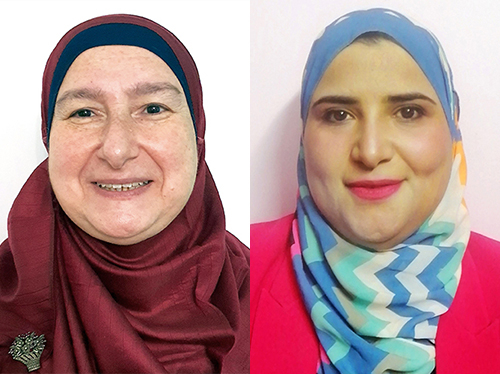

Dr. Amal El Taweel is a graduate of Faculty of Medicine, Cairo University, class of 1986. She obtained the Masters of Pediatrics in 1992 from Faculty of Medicine, Cairo university, and the Doctorate of Pediatrics from Al Azhar university in 2002. She became an IBCLC in 2003. Since 2004 she has been providing a pre-exam course for the Egyptian Lactation Consultants' Association of which she is a board member, treasurer and education coordinator. This program has been helping hundreds of Egyptian and Arab health care providers to certify as IBCLCs. She is also a member of the Advisory committee of IBFAN Arab world since 2012. She is a member of ILCA since 2008 and a member of the Academy of Breastfeeding Medicine (ABM) since 2009. She became a fellow and Board member of ABM in 2021.
Dr. Fayrouz Essawy is a pediatrician, neonatology consultant, an international board-certified lactation consultant, Neonatology Egyptian fellowship trainer, a baby friendly health initiative coordinator and Associate alumni, Harvard medical school. Fayrouz works as a neonatologist in El Mounira NICU. In 2016, she joined the LCCC course as a trainer, lecturer and course developer to train and qualify the medical team for IBCLC certification under the auspices of ELCA along with her work as a lactation consultant and a baby Friendly Coordinator and Trainer for a 20-hour course since 2019 in Rofayda maternity Hospital. She became a Neonatology Egyptian Fellowship trainer in 2020. She received the Egypt TOT (Training of Trainers), Harvard Medical School in 2020, and Research Training for Egyptian Researchers, Harvard Medical School in 2021. She is a member of the Egyptian Society of Pediatrics, the Egyptian lactation consultant association (ELCA), the academy of breastfeeding medicine (ABM) and the international lactation consultant Association (ILCA)
Breastfeeding is one of the matters that Islamic Sharia has given great importance. This is due to its importance and the fact that it replaces lineage in several matters, and the provisions of breastfeeding are many, including those related to the nursing mother and what pertains to the infant, as well as those related to and consequent on the milk itself.
The provisions of breastfeeding in Islam are many, including the provisions of fasting for a nursing mother and the mother’s right to receive the reward for breastfeeding her child, in the event that she is divorced, or revocable and her waiting period has expired, or if she is in the waiting period of death.
Also Islam fully supports adoption and encourages sponsoring orphans, rearing them, treating them kindly and seeing to their needs and interests. But adoption in Islamic law has rules and conditions that must be adhered to. there are some differences between Islam and the present system in other cultures, when we come to the implications and legal consequences of adoption. The rules come directly from the Quran, which gives specific rules about the legal relationship between a child and his/her adoptive family. Muslim women who adopt children may try to breastfeed these children in accordance with the provisions of Islamic Shariah law, which is to breastfeed the infant from three to five full feedings or more when the child is less than two years old.



